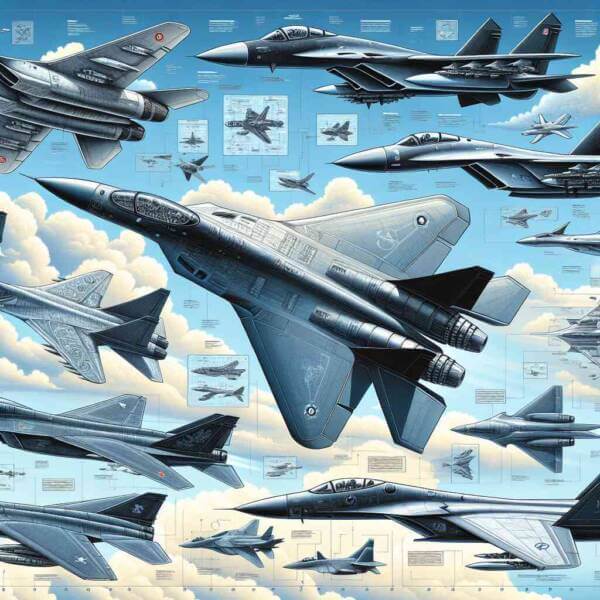
Military aviation is a critical pillar of modern defense strategies around the world.
Nations invest heavily in military aviation to protect national interests.
History of Military Aviation
Military aviation started during the early 1900s, with aircraft initially used for observation.
Major milestones in military aviation history include:
- First use of armed aircraft in combat
- Massive growth in air power
- Rapid development of jet technology
- Remote operations changing the face of conflict
Each era brought innovative strategies that expanded aerial warfare.
Main Categories of Military Aviation
Understanding the types of military aircraft helps in appreciating the complexity of modern air forces.
Major aircraft classifications:
- Aircraft designed for air-to-air combat
- Aircraft for long-range attacks
- Planes used to move troops and equipment
- Reconnaissance and surveillance drones
Each type plays a vital role in military operations, from securing airspace.
The Strategic Value of Military Aviation
Air superiority is vital for achieving military success.
How controlling the air impacts battles:
- Protecting ground forces
- Cutting off enemy resources
- Early warning and real-time data
- military aviation Demonstrating power and deterrence
Nations with strong military aviation capabilities can shape outcomes.
Technological Innovations in Military Aviation
Constant research and development redefine capabilities for future warfare.
Recent innovations include:
- Low-visibility planes
- Missiles and aircraft traveling at speeds greater than Mach 5
- Autonomous drones
- New forms of aerial weaponry
These advancements enhance lethality for air forces worldwide.
Risks and Limitations
Despite technological superiority, military aviation faces complex problems.
Pressing issues in military aviation:
- Rising development and maintenance costs
- Short life cycles for cutting-edge aircraft
- Cybersecurity threats
- New debates about AI in warfare
Addressing these challenges is crucial to staying ahead.
What Lies Ahead
The future of military aviation promises radical innovations.
Future trends may include:
- Smarter decision-making systems
- Space as the next battlefield
- Developing sustainable aviation technology
- Collaborations across allied air forces
The next era of military aviation will revolutionize how wars are fought.
The Enduring Power of Military Air Forces
Its history, present achievements, and future possibilities showcase technological excellence.
As technology continues to evolve, the skies will remain a frontline of innovation where military aviation protects nations.
The future of military aviation is full of potential — and it’s only just beginning.